The 2023-2024 class of Schweitzer Fellows recently gathered for our annual midyear retreat. This gathering served as a time for Fellows to reflect on their progress, learn new coping / wellness practices, and seek guidance on advancing their projects in community with their peers.
The day started off with Fellow for Life Padriac Stanley discussing how to rethink imposter syndrome. Schweitzer Fellows are admitted to our program because they are highly successful graduate professionals passionate about building power within the health equity movement. Yet, some report experiencing this syndrome. Padriac, with the help of Fellow for Life Lincoln Hill, who did her dissertation on imposter syndrome in Black women, drew from his own experience of having imposter syndrome as a Schweitzer Fellow. Padriac helped Fellows identify how imposter syndrome manifests and equipped them with strategies to combat it. Padriac underscored that people of color and women are more likely to feel imposter syndrome because they exist within a system that isn’t set up for them.
Then Hannah Shevrin, Health & Medicine’s Training and Capacity Building Manager presented on burnout. She discussed the root causes of burnout, emphasizing that burnout is a systemic issue of racist, for-profit systems. She helped the Fellows identify what burnout is and how to prevent and heal it. A key takeaway from both Hannah and Padriac’s presentations was that imposter syndrome and burnout are designed to be isolating; however, a way to combat both is rooted in being in community with your mentors and peers.
In the spirit of fostering wellness while building community, the rest of the midyear retreat consisted of group wellness workshops, a peer mentor panel, and learning collaborative meetings. Fellows had the opportunity to learn about mindfulness, Tai Chi/Qi Ghong, team-building games, and dance as ways to build resiliency. As always, our Fellows express appreciation for being able to be together throughout this process. Dr. Karol Dean stated that “one of the best aspects of the Fellowship program is being able to see these like-minded individuals problem solve together to improve each other’s projects. The Fellows are juggling their studies, projects, and personal lives, so it was refreshing seeing them reinvigorated about their projects after the midyear retreat. I am excited to see how they all continue to grow throughout their Fellowship year.”
